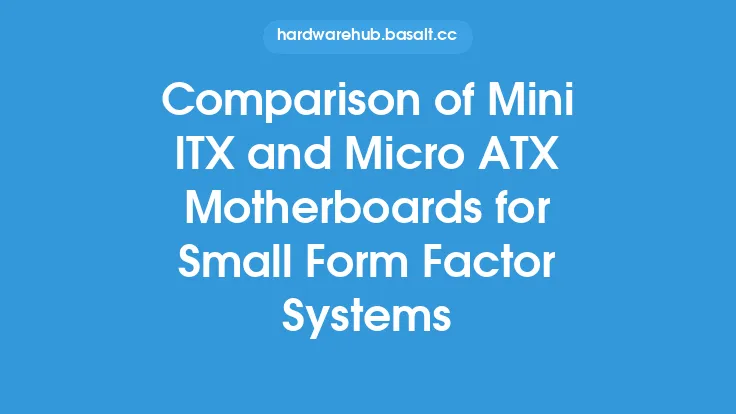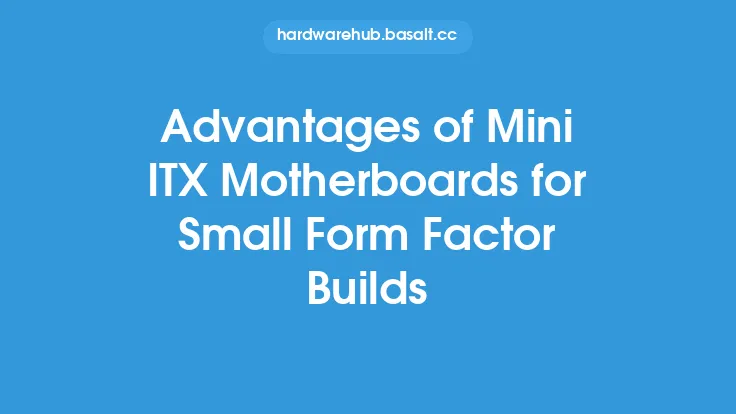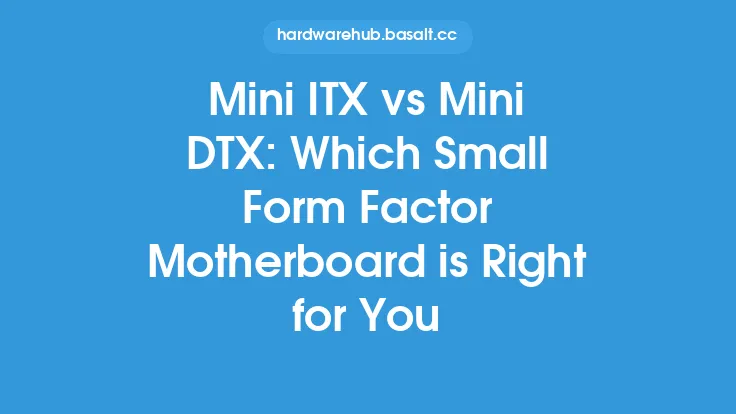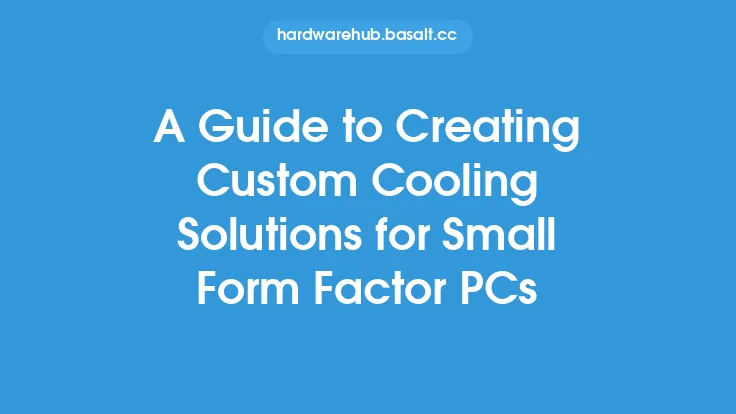When it comes to building or upgrading a computer for home or office use, one of the most critical components to consider is the motherboard. The motherboard serves as the main circuit board of the computer, connecting all the hardware components together and facilitating communication between them. In recent years, small form factor (SFF) motherboards have gained popularity due to their compact size, energy efficiency, and versatility. These motherboards offer a range of benefits that make them an attractive option for home and office users.
Introduction to Small Form Factor Motherboards
Small form factor motherboards are designed to be smaller than traditional ATX motherboards, while still providing the necessary features and connectivity options. The most common types of SFF motherboards include Mini ITX, Micro ATX, and Mini DTX. Mini ITX motherboards, in particular, have become increasingly popular due to their tiny size (6.7 inches x 6.7 inches) and ability to support a wide range of processors and components. SFF motherboards are ideal for building compact computers that can fit into small spaces, such as home theaters, offices, or even industrial environments.
Space-Saving Benefits
One of the primary benefits of SFF motherboards is their compact size, which allows for more flexible and space-efficient computer builds. With a smaller motherboard, users can build computers that are smaller, lighter, and more portable. This is particularly useful for home users who want to build a compact home theater PC or a small gaming PC that can fit into a living room or bedroom. Office users can also benefit from SFF motherboards, as they can build compact computers that can fit into small cubicles or offices.
Energy Efficiency
SFF motherboards are designed to be energy-efficient, which can lead to cost savings and reduced environmental impact. These motherboards typically require less power to operate, which can result in lower electricity bills and reduced heat generation. This is particularly important for office environments, where multiple computers are often used simultaneously, and energy efficiency can lead to significant cost savings. Additionally, SFF motherboards often support low-power processors and components, which can further reduce energy consumption.
Versatility and Upgradability
Despite their compact size, SFF motherboards offer a high degree of versatility and upgradability. Many SFF motherboards support a wide range of processors, including Intel Core and AMD Ryzen processors, as well as various types of memory and storage. This allows users to upgrade their computers as needed, without having to replace the entire motherboard. Additionally, SFF motherboards often feature multiple expansion slots, which can support graphics cards, sound cards, and other peripherals.
Technical Considerations
When building a computer with an SFF motherboard, there are several technical considerations to keep in mind. One of the most important considerations is cooling, as SFF motherboards can generate more heat per unit area than larger motherboards. This requires careful selection of cooling components, such as heat sinks and fans, to ensure reliable operation. Additionally, SFF motherboards often require more careful cable management, as the compact size can make it difficult to route cables and connectors.
Connectivity and Features
SFF motherboards often feature a range of connectivity options, including USB ports, SATA ports, and HDMI ports. These motherboards may also support advanced features such as Wi-Fi, Bluetooth, and high-definition audio. When selecting an SFF motherboard, users should consider their specific connectivity needs and ensure that the motherboard provides the necessary features and ports.
Applications and Use Cases
SFF motherboards are suitable for a wide range of applications and use cases, including home theaters, gaming PCs, office computers, and industrial systems. These motherboards are ideal for building compact computers that can fit into small spaces, while still providing the necessary features and performance. Additionally, SFF motherboards can be used in embedded systems, such as robots, drones, and other IoT devices, where compact size and energy efficiency are critical.
Conclusion
In conclusion, small form factor motherboards offer a range of benefits for home and office users, including compact size, energy efficiency, versatility, and upgradability. These motherboards are ideal for building compact computers that can fit into small spaces, while still providing the necessary features and performance. When selecting an SFF motherboard, users should consider their specific needs and requirements, including connectivity options, cooling, and technical considerations. With the right SFF motherboard, users can build a compact and efficient computer that meets their needs and provides reliable operation.





